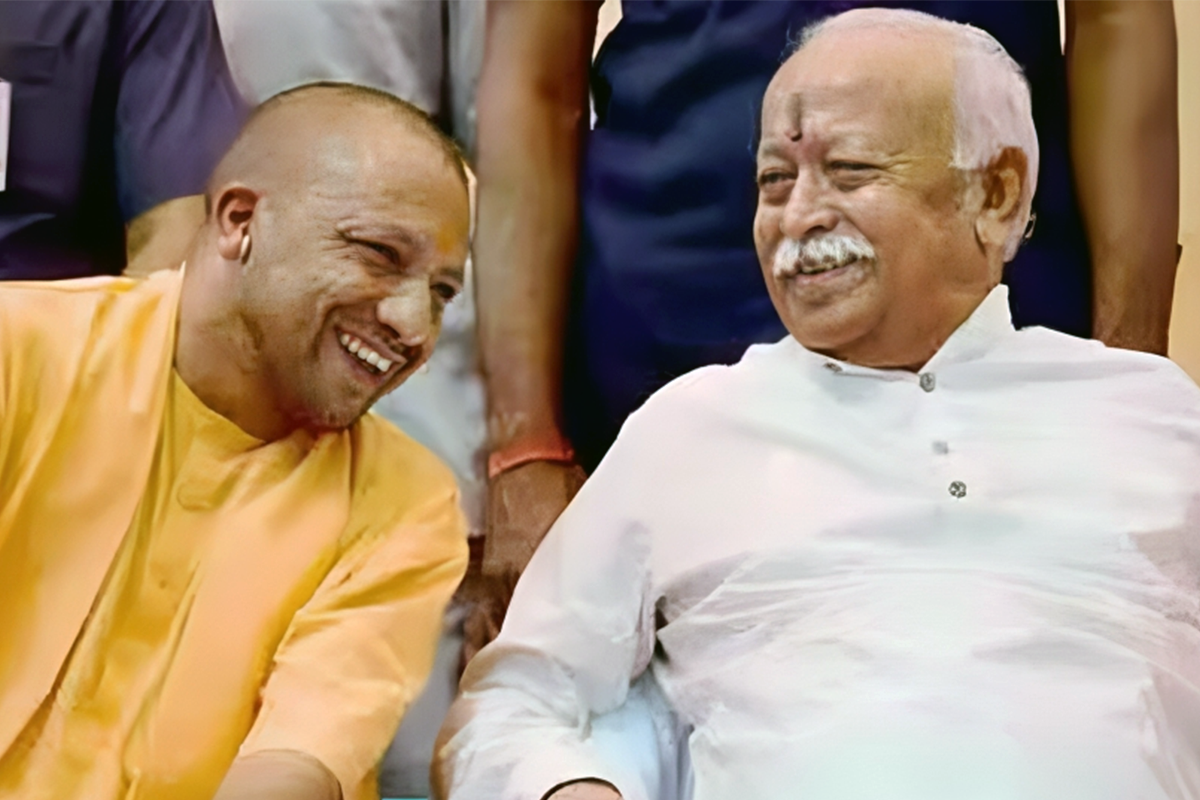Lucknow: The Chief of the Rashtriya Swayamsevak Sangh (RSS), Mohan Bhagwat, met Uttar Pradesh Chief Minister Yogi Adityanath on Saturday, marking the first day of his three-day visit to the state.
The two leading proponents of Hindutva held a discussion on a range of issues, including the ongoing projects in Ayodhya and the inauguration of the Ram Mandir scheduled for January 2024. According to reports, the meeting lasted for approximately 40 minutes at the Saraswati Shishu Mandir.
Before the arrival of RSS Chief Bhagwat, meetings were held in Lucknow for two days in the Awadh chapter of the RSS. These meetings saw participation from leaders of the RSS, BJP, and the UP government, including the Chief Minister and both Deputy Chief Ministers.
Their discussions revolved around strengthening the RSS, and a consensus was reached to make efforts to increase women’s participation in organisations affiliated with the RSS. This decision is being considered in conjunction with the recent passage of the Women’s Reservation Bill in the Lok Sabha. In preparation for the upcoming Lok Sabha elections, the RSS and BJP are planning to hold women’s conventions in the districts of Uttar Pradesh.
According to sources, the RSS chief recommended to UP CM Yogi Adityanath that they should work on creating a more inclusive atmosphere leading up to the inauguration of the Ram Temple. This would involve organising outreach programs aimed at connecting with Dalit communities.
During the next two days of his visit, RSS Chief Mohan Bhagwat will conduct meetings with RSS leaders based in the Awadh region and members of sister organisations affiliated with the RSS.
The Ram Janmabhoomi Mandir in Ayodhya is reportedly going to be inaugurated by Prime Minister Narendra Modi between 21-24 January 2024. On August 5, 2020, Prime minister Modi performed the Bhoomi puja for the construction of the Ram Temple.










